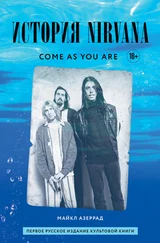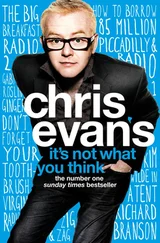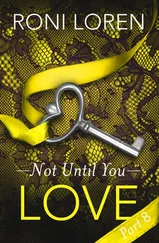‘That might even mean waiting till the completion of the project,’ the minister warned. ‘We might just end up paying the $187 million in full at the same time.’
The sound of $187 million arriving in full does a certain something to the human brain. Mr Winterbottom giggled and hopped about in his seat.
Back at the hotel, I brought out Ozu High Seas letterheaded documents and handed Mr Winterbottom his copies. I guess the Englishman from Uganda and Argentina was not such a mugu after all. He perused each piece of paper intensely, asking me questions from time to time before he was satisfied and finally willing to sign. Then he brought out a sleek pen from his jacket pocket and inserted a signature that looked as if it was in the habit of endorsing billions.
Afterwards, Mr Winterbottom said he wanted to go sightseeing. He had travelled along with his camera. The hired driver said he knew the best places we could see. I agreed to accompany Mr Winterbottom on the tour.
The driver showed us the modern mansions of Asokoro and the scenic streets of Maitama. He pointed out former Head of State General Ibrahim Babangida’s mansion, former head of state General Yakubu Gowon’s mansion, former head of state General Abdulsallam Abubakar’s mansion. He even showed us a house that was built in the shape of an aeroplane. But Mr Winterbottom was not impressed.
‘Where can I get some real good shots?’ he asked. ‘I want some real photos of real Africans.’
I apologised that Abuja was not the right place. There were no bare-bottomed children running around with flies in their nostrils. The driver of the hired car overheard our conversation and chipped in.
‘Oga, e get plenty villages wey dey for around Abuja, If you want, make I take you. Them no dey far at all.’
He took us just fifteen minutes away, to Kikaokuchi village. What I saw was beyond belief. The slum was teeming with real Africans living in real African houses. How could such sordidness be juxtaposed with so much affluence? The villagers gathered and stared at the white visitor in their midst. Mr Winterbottom went around patting shoulders.
‘Bature, bature,’ they whispered excitedly amongst themselves.
After about three hours of babbling with awestruck natives, listening to a bare-bottomed lad playing a bamboo flute, and taking photographs of men drinking fura da nono on raffia mats in front of their shacks, Mr Winterbottom was thirsty for new wine. The driver suggested yet another village that was just twenty minutes away.
‘No, I think we should go back to the hotel,’ I said. I had seen more than enough of Africa for one day.
‘I don’t mind visiting a few more places,’ Mr Winterbottom said. ‘This is really very exciting.’
‘I think we should go back to the hotel,’ I insisted. ‘You know Nigeria is a dangerous place.’ I paused. ‘Especially for a white man.’
That did the trick. He entered the car without another word of protest.
Back at the hotel, the driver nearly zonked out when Mr Winterbottom recompensed him with $100 – a likely approximate of his monthly income in just one day. The man genuflected at least a gazillion times, chanting ‘thank you, Master, thank you, Master’ each time his head arched towards the floor.
I shook Mr Winterbottom’s hand, wished him a good evening, and left him by his room door. Someday, he would look back and understand why I had been so shy throughout the African tour, why I had declined every one of his fervent invitations to feature in his photo shots.
On the day that Cash Daddy publicly declared himself as one of the Abia State gubernatorial aspirants, there was not a single tout left roaming the streets of Aba. All of them had been paid in advance and transported in fifty-eight-sitter buses to the National Advancement Party (NAP) headquarters in Umuahia, where they were gathered and waiting when our convoy of brand new jeeps arrived. As soon as they sighted us, the crowd chanted and cheered with naira-fuelled gusto.
‘Cash Daddy na our man! Cash Daddy na our man!’
Their man descended slowly from his carriage and waved with a straight face. Protocol Officer, his bodyguards, some of his new political friends, and yours truly accompanied him into the building, where Protocol Officer presented a seven-figure naira cheque in exchange for the nomination form. The crowd hollered another loud cheer when they saw us emerge from the building. They grew more deafening when Cash Daddy waved the form in the air. Major newspapers and television stations in Abia State had been paid good money to cover the event, so the cameras flashed and the microphones popped out. When Cash Daddy raised his right hand, the crowd fell silent.
‘People of Abia State,’ he began. His voice was deep and calm, like a defence counsel in a murder trial closing his case. ‘I appreciate that you’ve turned out to show your support as I declare my intention to contest for governor of this great state. I thank you very much. I promise you will never regret it.’
The crowd cheered. He dimmed his eyes and scanned the multitude as if taking personal note of each person’s face.
‘I’ve been very, very blessed in Abia State, and all I want is an opportunity to be a blessing in return.’
He told them of his plans to provide free education at primary school level, about his plans for agriculture and for development of roads and other infrastructure. He promised to attract foreign investors to ensure that Abia was given its rightful place on the map of the world. Once again, I could not restrain my admiration for this Boniface Mbamalu of a man. I had composed this speech two days ago and spent most of the previous night rehearsing it with him. But I was the mere architect; Cash Daddy had infused the words with real life. The touts gathered might not be equipped to appreciate all these wonderful promises, but the television and radio audiences would understand.
Cash Daddy concluded.
‘My brothers and sisters, God bless Abia State, God bless all of us.’
The crowd burst into a flood of cheering and chanting.
Cash Daddy smiled, waved, kept on waving, and continued waving for about ten more minutes, before we finally returned to the jeeps and drove off.
Back at the office, I waited for Cash Daddy to finish conferring with his political cronies. He wanted to meet with me afterwards. Meanwhile, I was delighted to see that my good friend Edgar was still very much in the flow.
Dear Shehu,
ALUTA CONTINUA!
I received another phone call from Jude at the security company and he ACCUSED me of causing unnecessary delays. I assured him that it WASN’T MY FAULT that things were taking SO LONG. I had NO IDEA about all the FULL REQUIREMENTS before I sent him the other documents, if not I would have waited. I would APPRECIATE if you or your sister could give him a call and assure him that all the delays haven’t been any fault of mine.
I know you and your sister already have A LOT you’re dealing with, but DON’T WORRY, I’m right here to HELP
you get this thing sorted out. You REST ASSURED that I’m COMMITTED to helping you TILL THE VERY END.
Best,
Your friend, Edgar
Oh, I had no doubts at all about his commitment. For an $11.6 million cut, Goering would have been willing to save Anne Frank.
So far, Mr Hooverson had sent money to Nigeria for the change-of-beneficiary certificate and lawyer’s fees. In exchange, I had given him all the receipts and other documentation necessary to claim the money at the security firm. He was now in the hands of our associates in Amsterdam who would carry on milking him until he became unbearably desperate.
There was also an email from my Lufthansa airline pilot mugu, threatening me with the FBI. Haha. Unfortunately, the FBI could not do much to stop us. We had fictitious companies registered with the Corporate Affairs Commission and the Chamber of Commerce. We had account details that had been given to us by several different mugus over time, and we had carried out transactions from thousands of ghost accounts in banks around the globe. Anybody hoping to follow our trail would simply be throwing away their precious time.
Читать дальше
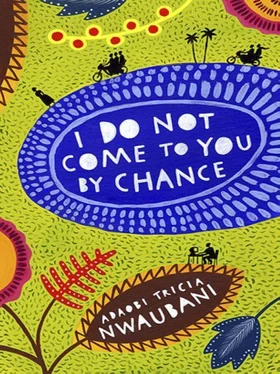
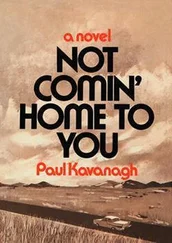

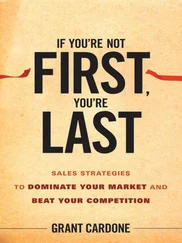

![Майкл Азеррад - Come as you are - история Nirvana, рассказанная Куртом Кобейном и записанная Майклом Азеррадом [litres]](/books/392533/majkl-azerrad-come-as-you-are-istoriya-nirvana-ra-thumb.webp)
